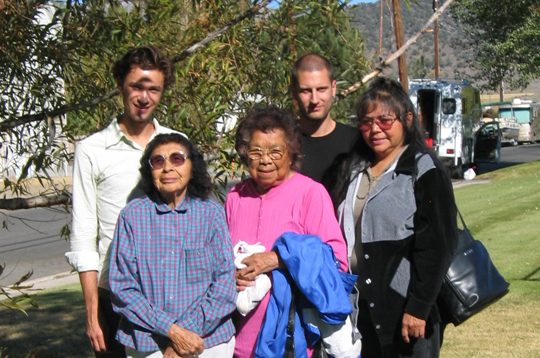The people who speak the Numu (Northern Paiute) language live in many communities across the western United States, from Mono Lake in eastern California into Nevada, Oregon, and Idaho. The members of each community often refer to themselves, and to the members of other communities, by a traditional food they ate. There are four communities on the eastern slopes of the Sierra Nevada that speak one dialect of the language: the Koodzabe Duka'a ("alkali fly pupae eaters" of Mono Lake, Lee Vining, California), the Way Dukadu or Pogi Dukadu ("rye grass seed eaters" of Bridgeport, California), the Onabe Dukadu ("salt eaters" of Coleville, California), and the people of Pehabe Paa'away ("the place of sweet water", Sweetwater, Nevada).
Other distinct, but mutually intelligible dialects are spoken farther to the north and to the east. Many of these communities have initiated programs to teach the language, including at Reno-Sparks and Pyramid Lake, Nevada and Burns, Oregon. These have produced learning materials, such as phrase books, audio and video tapes, and lesson plans, designed for use in the classroom. In addition, the State of Nevada has approved the awarding of credit for Northern Paiute language instruction in high schools at Pyramid Lake and in Reno-Sparks and McDermitt, Nevada.
The Numu (Northern Paiute) language is a member of the Uto-Aztecan language family. It is most closely related to the language of the Owens Valley Paiute and to Mono, spoken directly on the other side of the Sierra Nevada. More distantly, it is related to the language of the Shoshoni, who live in Death Valley, California and to the east and north, as well as to that of the Kawaiisu and Ute, who reside in southern California, Nevada, Utah, and Arizona. The structure and cultural significance of these languages — as well as their histories and the relations among them — are areas of active research for linguists, anthropologists, archaeologists, and historians.
